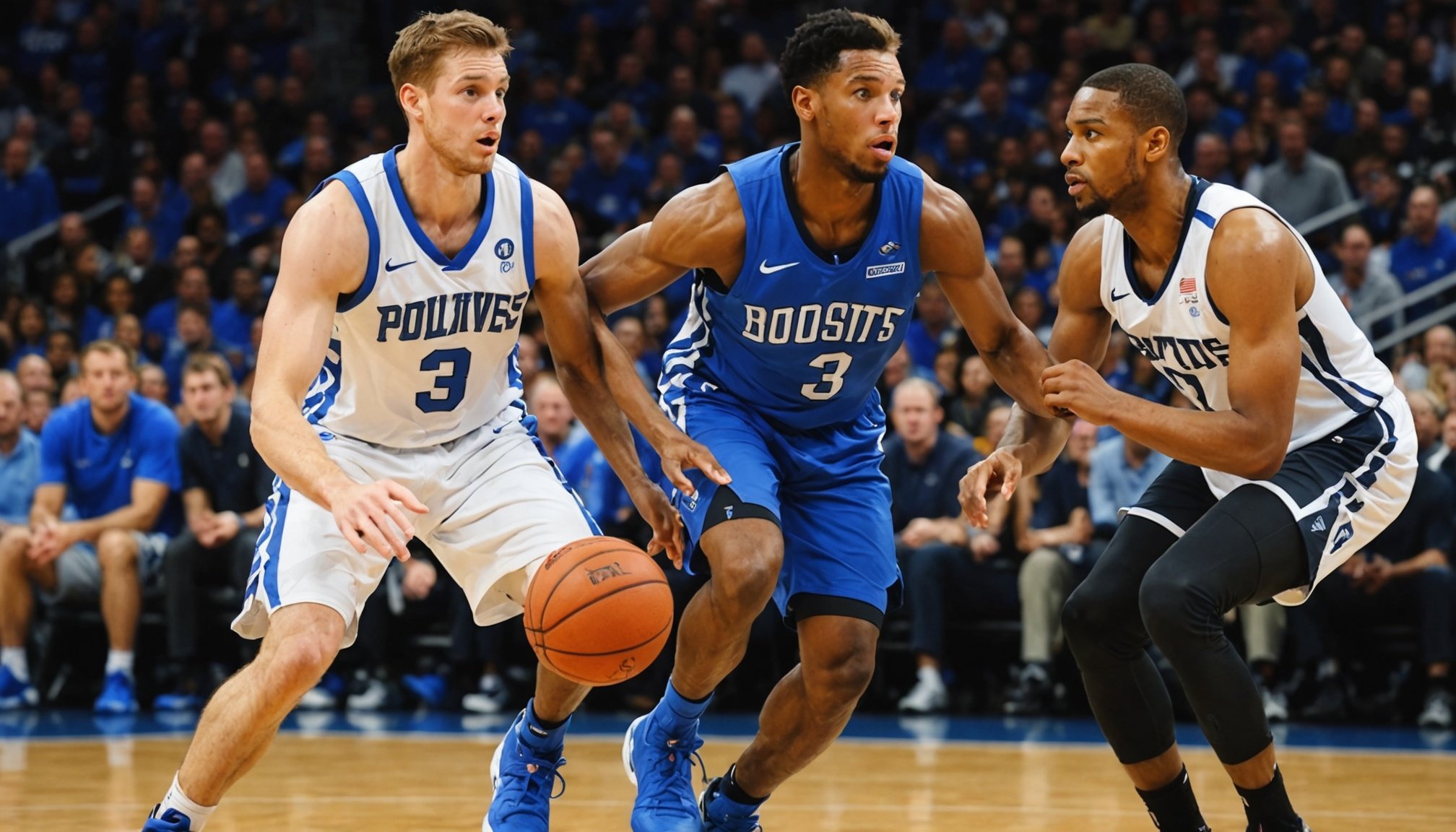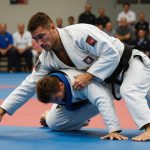Mastering the Mind: Effective Psychological Techniques for UK Basketball Players to Conquer Performance Anxiety
Understanding Performance Anxiety in Sports
Performance anxiety, often referred to as the pressure to perform, is a common challenge faced by athletes across all sports, including basketball. This anxiety can manifest as fear of failure, fear of making mistakes, or the overwhelming desire to succeed, all of which can significantly impact an athlete’s performance. To help UK basketball players overcome this hurdle, it is crucial to delve into the realm of sport psychology and explore the various psychological techniques that can enhance mental toughness and overall athletic performance.
The Role of Sport Psychology
Sport psychology is an interdisciplinary field that combines knowledge from psychology, biomechanics, physiology, and kinesiology to understand how psychological factors influence performance and how participation in sports affects psychological and physical well-being[1].
Also read : Mastering Game-Day Nerves: Top Strategies for UK Basketball Players to Thrive Under Pressure
Key Aspects of Sport Psychology
- Cognitive and Behavioral Strategies: Sport psychologists teach athletes cognitive and behavioral strategies to improve their experience and performance. These strategies include techniques such as goal setting, self-talk, and mental rehearsal[1].
- Mental Preparation: Mental preparation involves training athletes to manage stress, maintain motivation, and enhance their focus. This can be achieved through mindfulness, meditation, and other relaxation techniques[5].
- Team Dynamics: Sport psychology also focuses on team building and communication, which are essential for cohesive team performance. This includes strategies to enhance teamwork, leadership, and decision-making skills[1].
Techniques for Managing Performance Anxiety
Several psychological techniques can help athletes manage performance anxiety and achieve peak performance.
Mindfulness and Meditation
Mindfulness and meditation are powerful tools for reducing stress and anxiety. These practices help athletes focus on the present moment, reducing worries about the past or future. For example, LeBron James and Kobe Bryant, renowned basketball players, have credited meditation with improving their mental toughness and performance[5].
Also to see : Mastering the court: innovative training strategies for uk basketball players on diverse playing surfaces
### Benefits of Mindfulness and Meditation
- Reduces stress and anxiety
- Enhances concentration and attention span
- Improves emotional well-being
- Increases self-awareness
- Helps in managing negative thoughts
Self-Talk and Positive Affirmations
Self-talk, or the internal dialogue athletes have with themselves, plays a significant role in their mental preparation. Positive self-talk can boost confidence and motivation, while negative self-talk can exacerbate anxiety.
### Examples of Positive Self-Talk
- "I am well-prepared for this game."
- "I can handle the pressure."
- "I trust my training and abilities."
Mental Rehearsal
Mental rehearsal, or visualization, involves imagining oneself performing successfully in a given scenario. This technique helps athletes prepare mentally for competitions, build confidence, and reduce anxiety.
### Steps for Effective Mental Rehearsal
- Find a quiet and comfortable space to relax
- Close your eyes and visualize the competition
- Imagine yourself performing successfully
- Focus on the sensations, sounds, and emotions associated with the scenario
- Repeat the visualization several times
Goal Setting
Goal setting is a fundamental technique in sport psychology that helps athletes stay focused and motivated. By setting clear, achievable goals, athletes can break down their larger objectives into manageable tasks, reducing overall pressure.
### SMART Goal Setting
- **Specific**: Clearly define what you want to achieve.
- **Measurable**: Quantify your goals so you can track progress.
- **Achievable**: Ensure your goals are realistic and attainable.
- **Relevant**: Align your goals with your values and priorities.
- **Time-bound**: Set deadlines for achieving your goals.
Case Studies and Testimonials
Real-life examples from athletes who have benefited from these techniques can be highly motivating and insightful.
Testimonial from Maxime Vielfaure
Maxime Vielfaure, a French athlete, credited his mental coach, Marvin Vega, with helping him visualize his competitions and improve his performance:
“Marvin allowed me to focus and more easily visualize my fights. Even in my personal life and professionally, in my classes, I have the ability to visualize a training session before doing it. When it comes to mental preparation, you hesitate, you doubt, you don’t know what it’s worth. But I tried anyway, and the first competition I did after his coaching, I won.”[3]
Comparative Analysis of Psychological Techniques
Here is a comparative analysis of some of the key psychological techniques used in sport psychology:
| Technique | Description | Benefits | Examples |
|---|---|---|---|
| Mindfulness and Meditation | Practices to focus on the present moment and reduce stress. | Reduces anxiety, enhances focus, improves emotional well-being. | LeBron James, Kobe Bryant[5] |
| Self-Talk | Internal dialogue to influence performance. | Boosts confidence, motivation; reduces negative thoughts. | “I am well-prepared for this game.” |
| Mental Rehearsal | Visualizing successful performance. | Builds confidence, reduces anxiety, enhances preparation. | Marvin Vega’s coaching method[3] |
| Goal Setting | Setting clear, achievable objectives. | Enhances focus, motivation; reduces overall pressure. | SMART goal setting framework |
| Stress Management | Techniques to manage stress and pressure. | Reduces anxiety, improves performance under pressure. | Deep breathing, physical activity[2] |
Integrating Psychological Techniques into Training
To effectively integrate these psychological techniques into their training, athletes and coaches should consider the following steps:
Pre-Competition Preparation
- Mental Rehearsal: Visualize the competition to build confidence and prepare mentally.
- Positive Self-Talk: Use positive affirmations to boost motivation and reduce anxiety.
- Mindfulness and Meditation: Practice mindfulness and meditation to reduce stress and enhance focus.
During the Competition
- Focus on the Present: Concentrate on the current moment and task at hand.
- Breathing Techniques: Use deep breathing to manage stress and stay calm.
- Positive Self-Talk: Continue using positive affirmations to maintain confidence.
Post-Competition Reflection
- Review Performance: Analyze the competition to identify areas for improvement.
- Reflect on Mental State: Evaluate how mental preparation affected performance.
- Adjust Strategies: Make necessary adjustments to mental preparation techniques for future competitions.
Mastering the mind is a crucial aspect of achieving peak performance in sports, particularly in high-pressure environments like basketball. By leveraging techniques such as mindfulness, self-talk, mental rehearsal, and goal setting, athletes can significantly reduce performance anxiety and enhance their overall mental toughness.
As Gilles Binet, a professional in mental preparation, aptly puts it: “It’s a more human than sportive management. It’s about making the athlete progress outside of technique, physicality, tactics, or strategy. Mental preparation for an athlete happens before, during, and after the competition. You need to prepare regardless of the results you might achieve.”[5]
By understanding and applying these psychological techniques, UK basketball players can better manage performance anxiety, improve their mental health, and achieve their full potential on the court.






